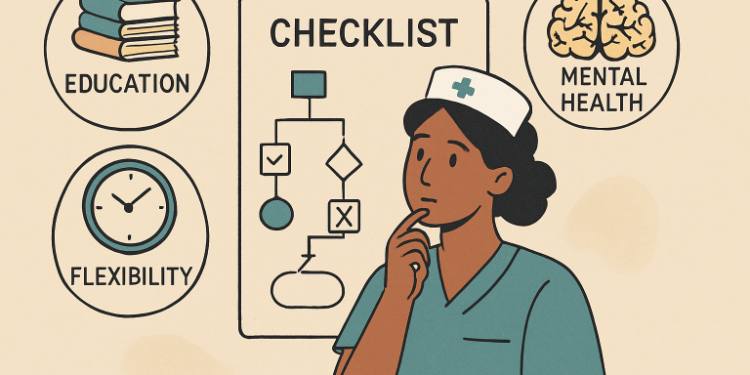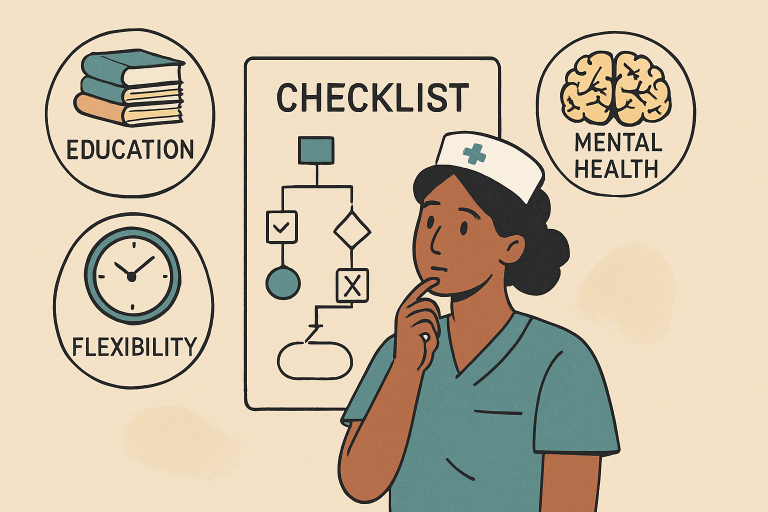How to Choose the Right Psychiatric-Mental Health Nurse Practitioner Program

Embarking on a career as a Psychiatric-Mental Health Nurse Practitioner (PMHNP) offers a unique opportunity to make a profound difference in the lives of individuals and communities. As awareness and demand for mental health services continue to rise, choosing the right educational pathway becomes even more imperative. Today’s aspiring PMHNPs have many options, including various online PMHNP programs designed to fit diverse needs and lifestyles.
Whether you are a working nurse seeking career advancement or new to mental health specialties, selecting the right program can influence your professional outcomes for years. Different programs offer unique focuses—from advanced psychotherapy to integrated care approaches—so understanding the most important decision criteria is essential before you commit.

Table of Contents
- 1 Accreditation: Ensuring Quality Education
- 2 Curriculum: Comprehensive and Relevant
- 3 Faculty Expertise: Learning from the Best
- 4 Clinical Training Opportunities: Hands-On Experience
- 5 Program Flexibility: Balancing Commitments
- 6 Cost and Financial Aid: Planning Your Investment
- 7 Certification and Licensure Preparation: Meeting Requirements
- 8 Program Reputation: Assessing Quality
- 9 Final Thoughts
Accreditation: Ensuring Quality Education
Confirming program accreditation is the first and most crucial step in your selection process. Look for credentials from the Commission on Collegiate Nursing Education (CCNE) or the Accreditation Commission for Education in Nursing (ACEN). Accreditation means the program meets national quality standards and is recognized by regulatory bodies—ensuring your education qualifies you for certification exams and nursing board licensure. Programs like those offered at St. Thomas University exemplify this commitment to quality, providing students with the confidence that their degree will support immediate career goals and long-term professional growth. Without this, you may face obstacles in job placement or further educational pursuits.
Curriculum: Comprehensive and Relevant
A robust curriculum grounds you in essential areas such as psychopharmacology, psychotherapeutic techniques, crisis intervention, and psychiatric diagnosis across diverse age groups and populations. Ensure the core courses and electives closely align with modern psychiatric practice standards and include opportunities for evidence-based research. Prospective students should also verify that the program provides thorough training in diagnostic reasoning, treatment planning, and interprofessional collaboration.
Faculty Expertise: Learning from the Best
The expertise and mentorship available from qualified, experienced faculty are invaluable assets. Programs staffed by practicing PMHNPs, psychiatric clinical nurse specialists, or doctoral-level instructors provide students with deep practical insights and up-to-date clinical best practices. Review faculty biographies and credentials to ensure the program brings academic excellence and real-world psychiatric nursing experience to the classroom.
Clinical Training Opportunities: Hands-On Experience
Direct clinical training forms the backbone of your education. A strong PMHNP program will arrange for diverse placement sites, guaranteed preceptors, and supervision across inpatient hospitals, outpatient clinics, substance abuse centers, and school mental health programs. This hands-on experience is essential for honing your patient assessment and care management skills, and it can give you a competitive edge in the job market. More on clinical training standards is available from organizations like the American Psychiatric Association.
Program Flexibility: Balancing Commitments
Many students require flexibility in their educational journey. Evaluate program delivery formats—whether online, hybrid, or part-time—to choose one that meshes with your work and life commitments. Some programs offer asynchronous learning and year-round admissions or rolling start dates, enabling you to progress at your own pace and balance other responsibilities.
Cost and Financial Aid: Planning Your Investment
Understanding the total cost of attendance—including tuition, fees, books, and technology requirements—should be part of your decision-making process. Investigate scholarships, employer tuition reimbursement, grants, and other financial aid solutions. Responsible financial planning helps you get the training you need without unmanageable debt.
Certification and Licensure Preparation: Meeting Requirements
Completing a recognized PMHNP program is only the first step. Ensure the curriculum prepares you to pass the American Nurses Credentialing Center (ANCC) Psychiatric-Mental Health Nurse Practitioner board certification exam. You should also confirm that the program will fulfill all clinical hour requirements for licensure in the state where you plan to practice, as requirements can vary.
Program Reputation: Assessing Quality
What current students and alumni say about a program can be as telling as formal rankings and outcomes data. Read independent reviews, talk to graduates, and search for job placement statistics or employer partnerships. A program with a reputation for outstanding outcomes, mentorship, and post-graduation success can position you well for advanced career roles and future doctoral studies.
Final Thoughts
Choosing a psychiatric-mental health nurse practitioner program goes far beyond checking a handful of boxes. Accreditation, curriculum quality, expert faculty, clinical rotations, flexible course delivery, manageable costs, certification prep, and a strong professional reputation all play major roles in building a successful future. Give each factor the careful consideration it deserves to ensure you invest in a program that supports your ambitions and prepares you for the rapidly evolving field of mental health care.






